
Sutton Place | 1965
Osborn Road at 26th Street in Phoenix
Sutton Place was yet another collaboration between Ralph Haver AIA and developer Dell Trailor. A new zoning ordinance in Phoenix made cluster housing like this possible.
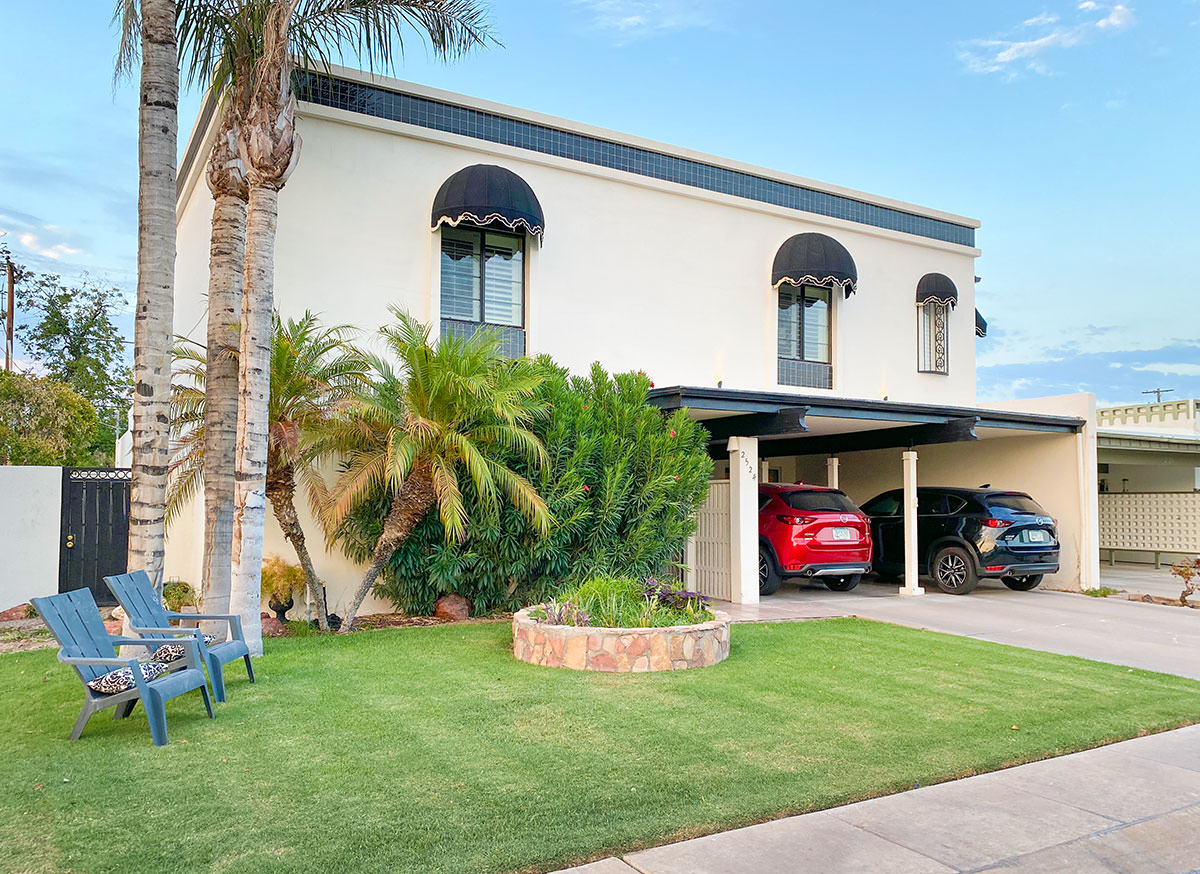
Situated on odd lots too small to develop for single-family homes, Trailor spied these pockets of land as ideal for denser cluster housing, both serving a need for a new affordable housing type and ensuring him a healthy profit margin on development.
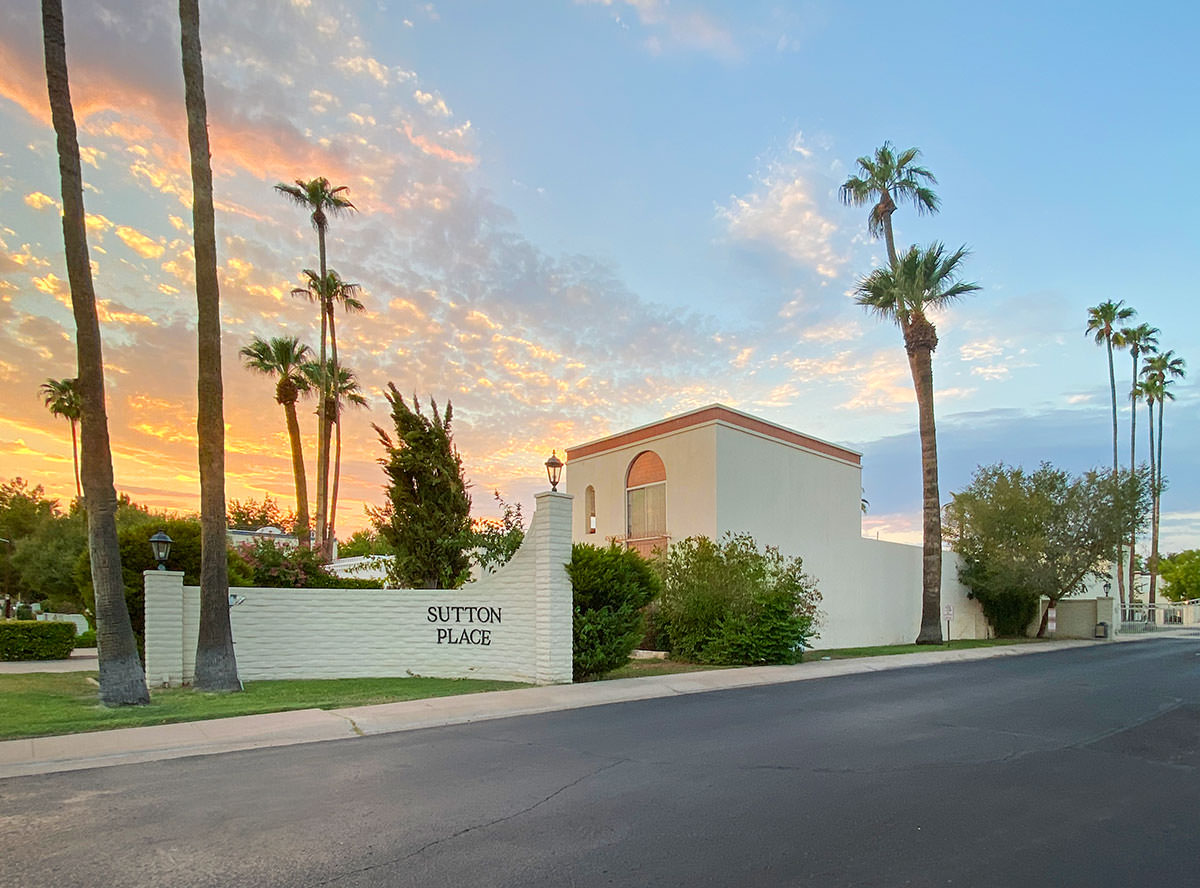
In the March 1966 issue of
Arizona Builder/Architect magazine Trailor remarked: "Once a year we use a piece of land that has been bypassed. A piece of land that makes people wonder, 'How in the world can he use it?' We feel that's a challenge we want to meet."
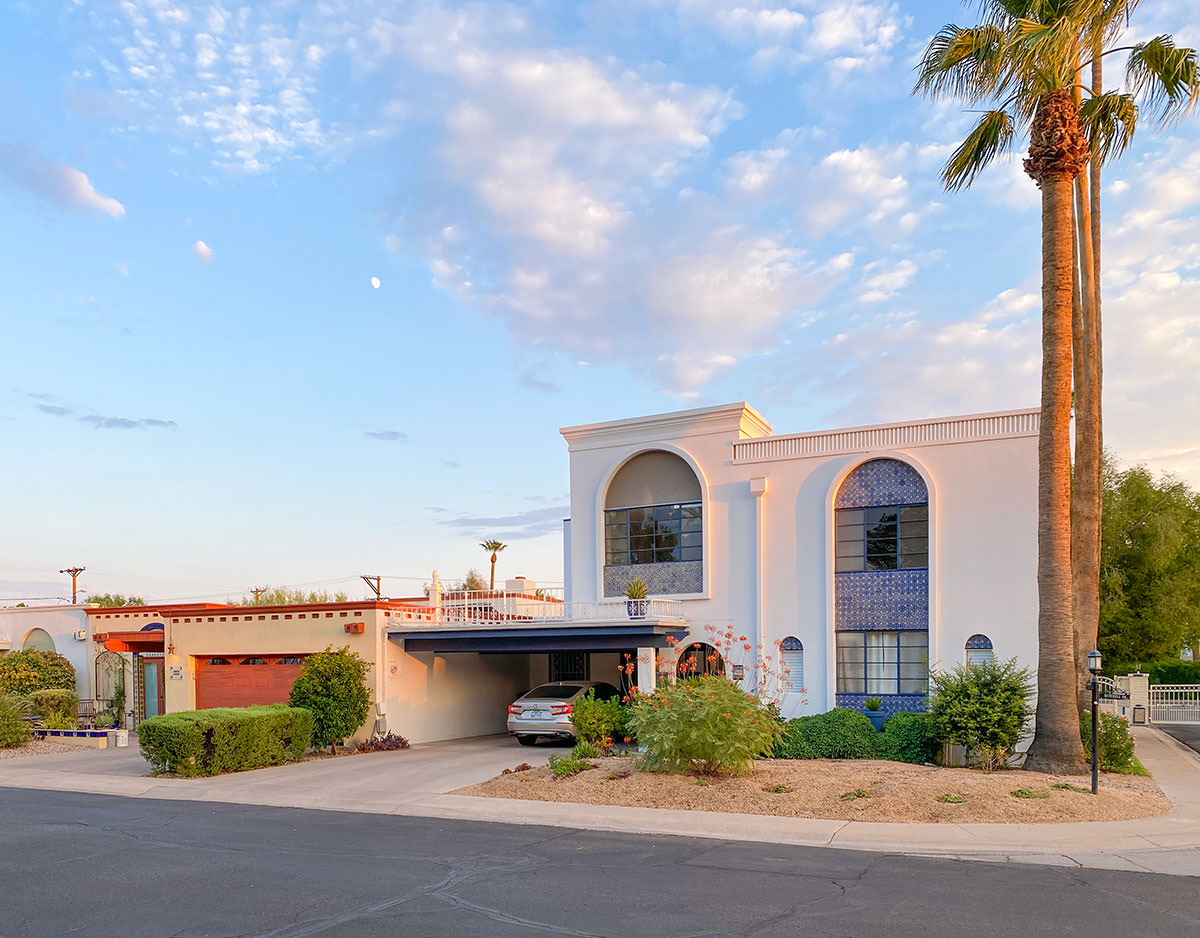
These Mediterranean styled connected townhomes continued the aesthetic Haver started in Villa Monterrey, with open carports and little touches of postmodern flair that includes arched features above windows, arched slot windows, wrought iron gates and (often non-functional) window grilles, dome awnings, breezeblock carport dividers, shallow balconies and either pumice block or glazed tile frieze details. Many of the design motifs shown here carried through on development to follow in Scottsdale,
Villa d'Este.
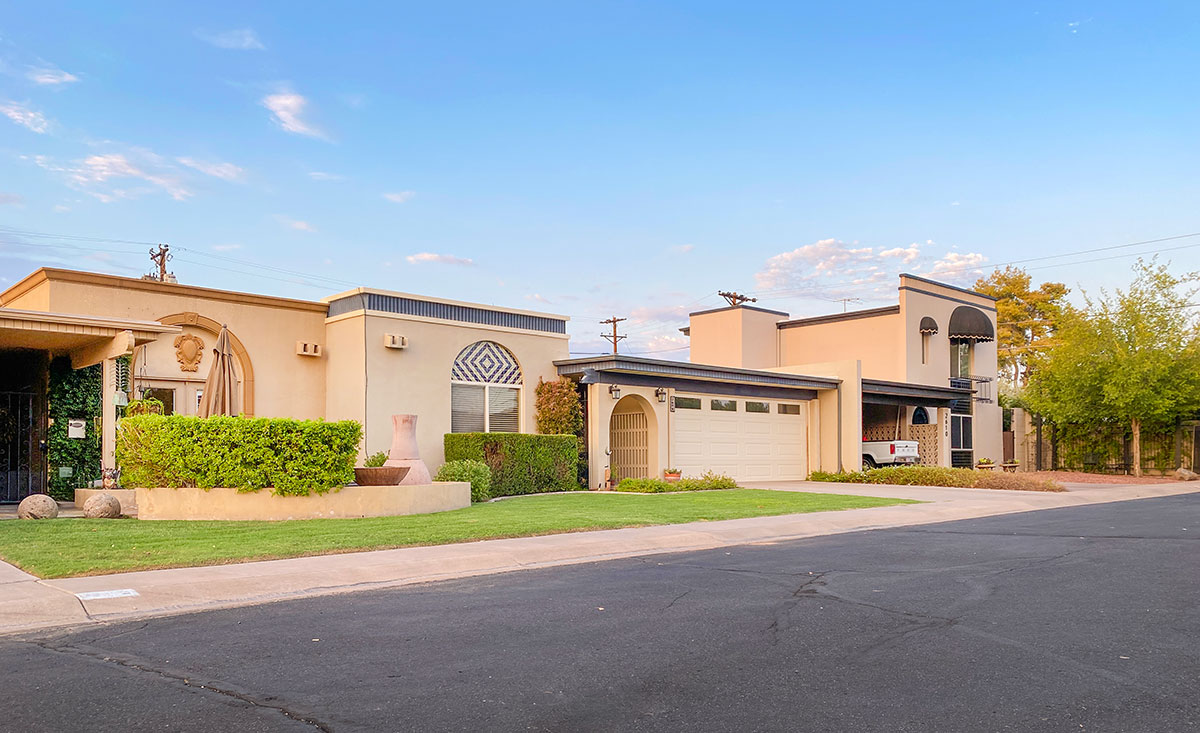
Olive and earth tones were a popular choice for exterior colors.
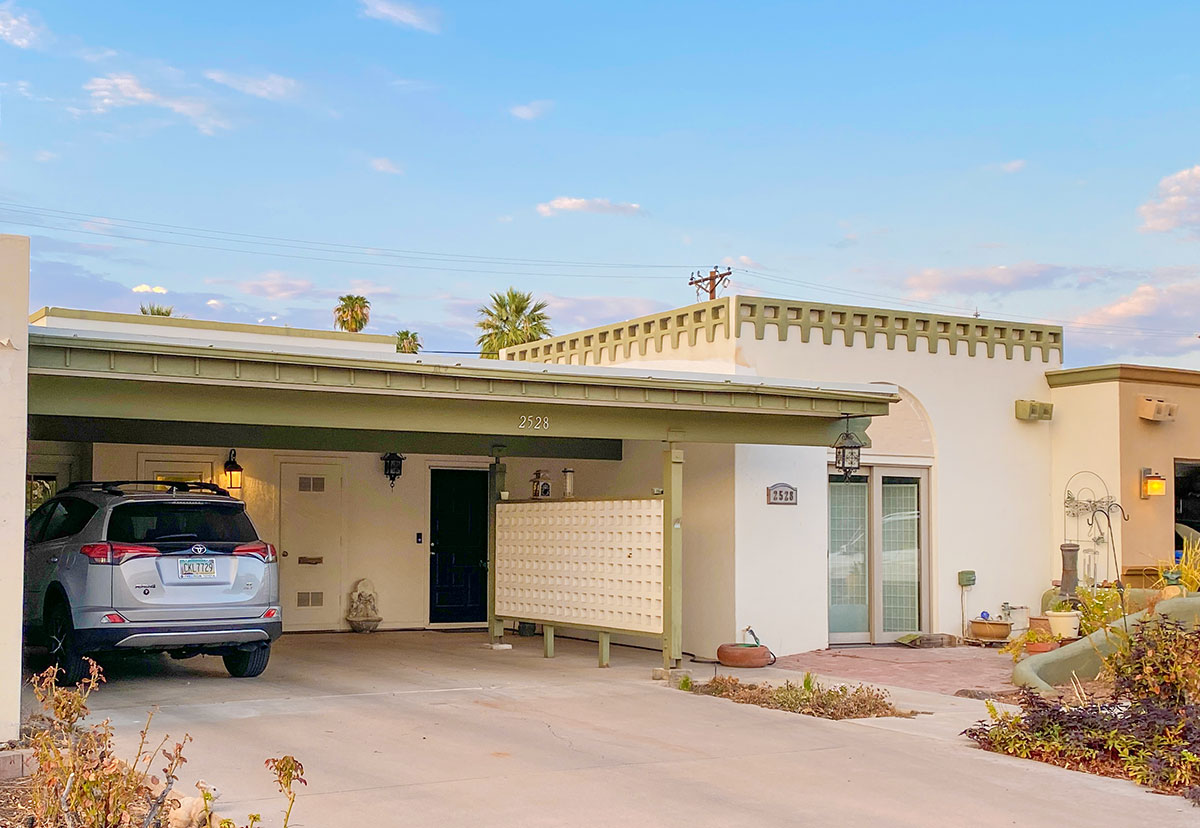
The 47 units sold quickly. The condominium concept began to take legitimate hold in Phoenix and boomed into the 70s. Immediately across the street Trailor and Haver collaborated on its sister development Beekman Place, built in the same year.
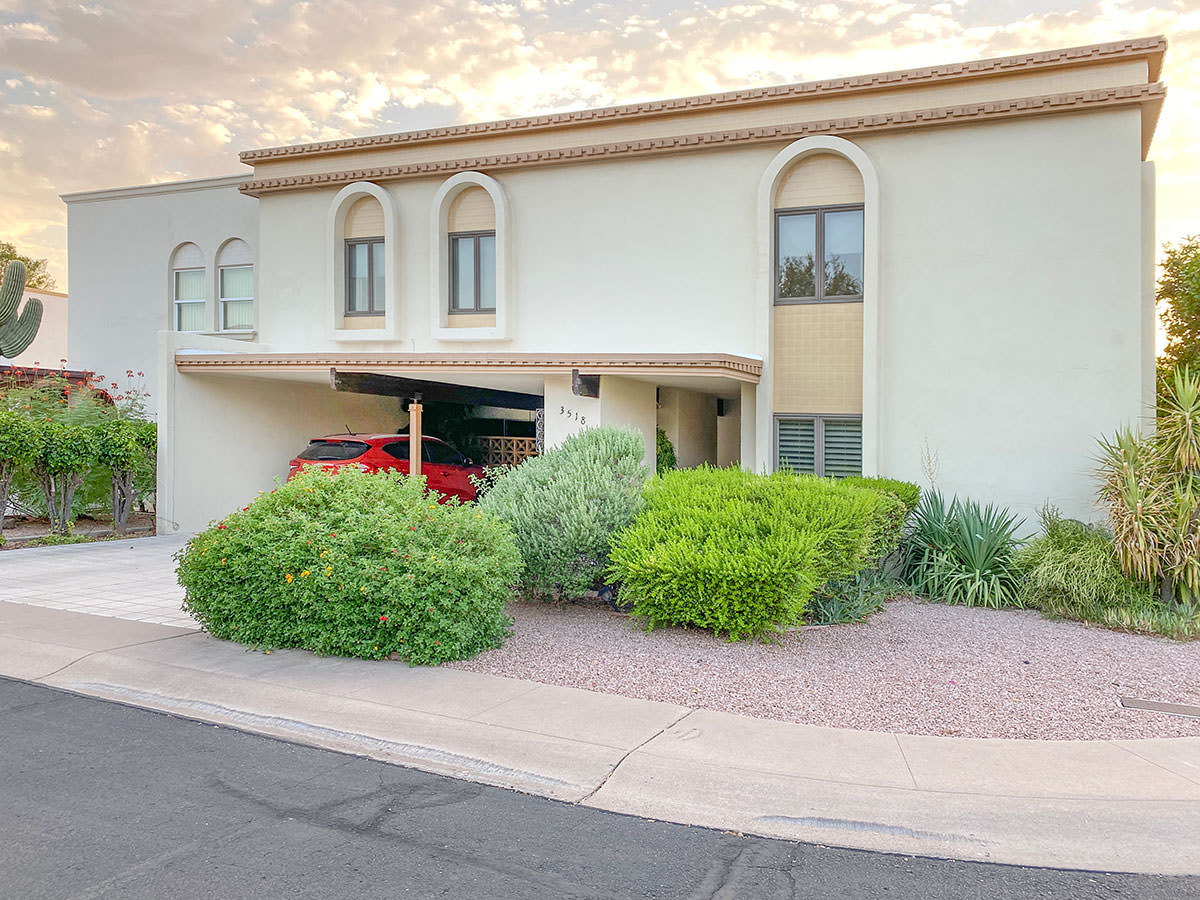
Dell and Mibbs Trailor, with their two young children, were the first family to occupy the subdivision. Local lore says that this townhome was personal residence.

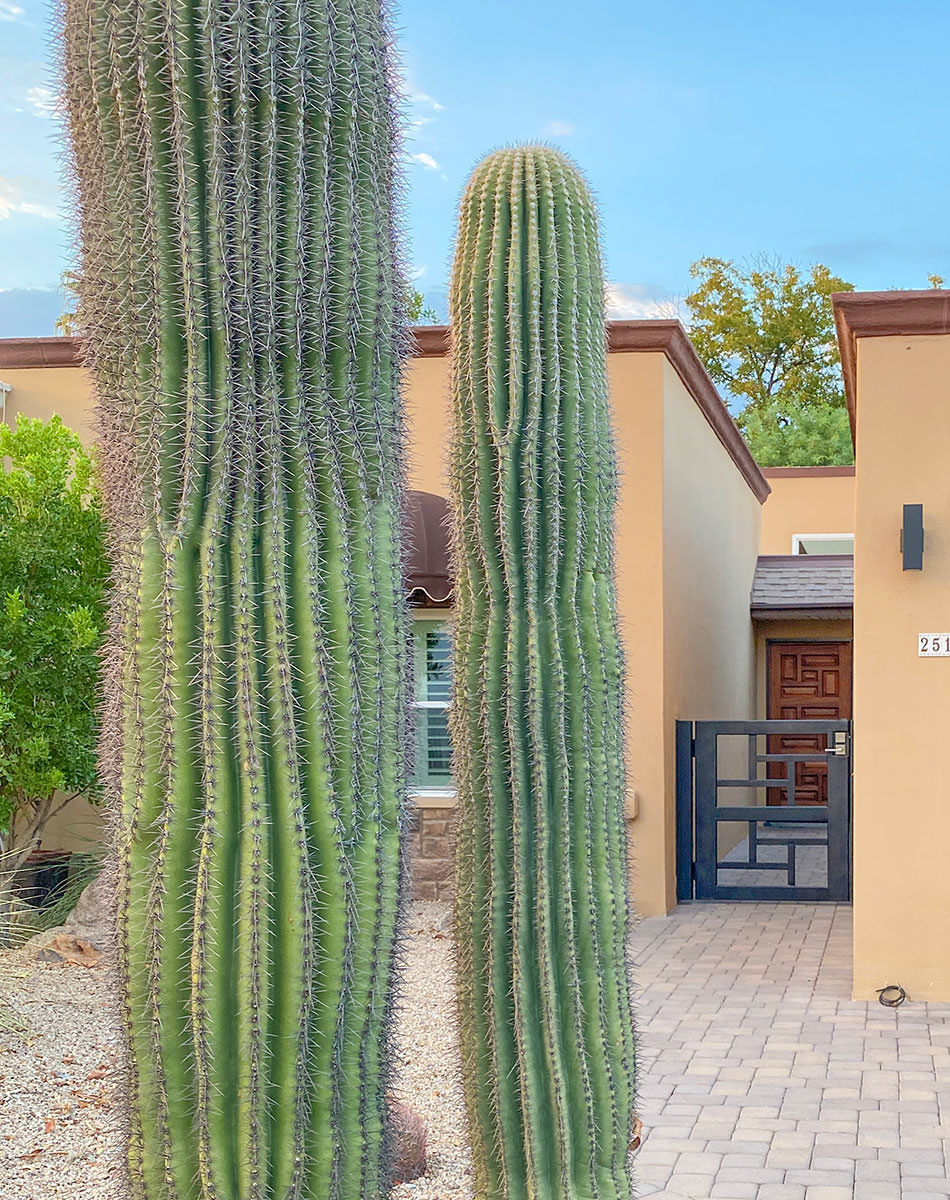
Many of the homes feature a narrow vestibule with security or entry gate of some kind. This contemporary gate has been customized to mirror the raised pattern on the front door. Minor alterations like this can cause incremental "design creep", so C&Rs deter drastic modification of the exterior, making the neighborhood appear much as it did in the mid-60s. Each property includes a back yard area which may be altered as the owner likes.
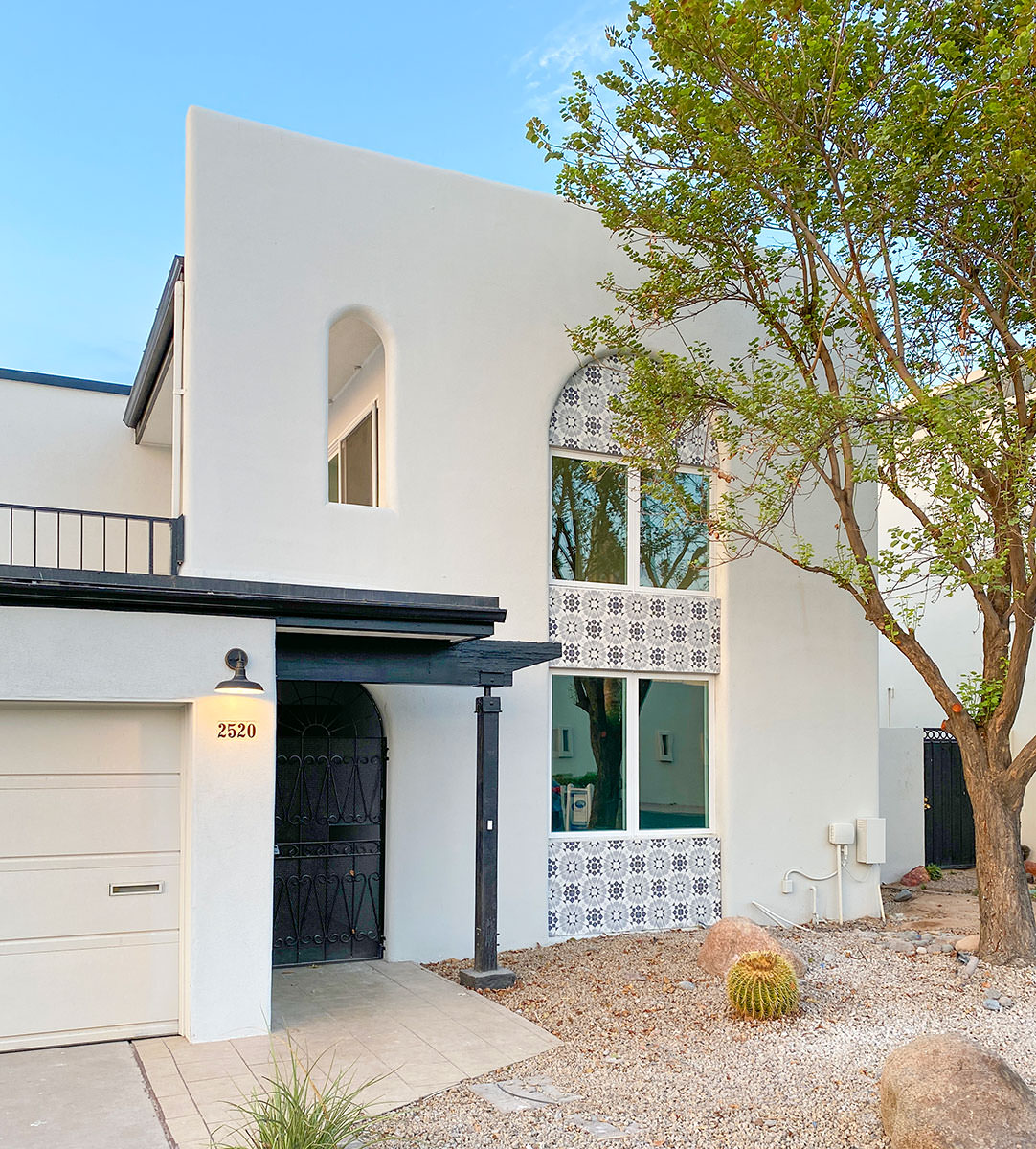
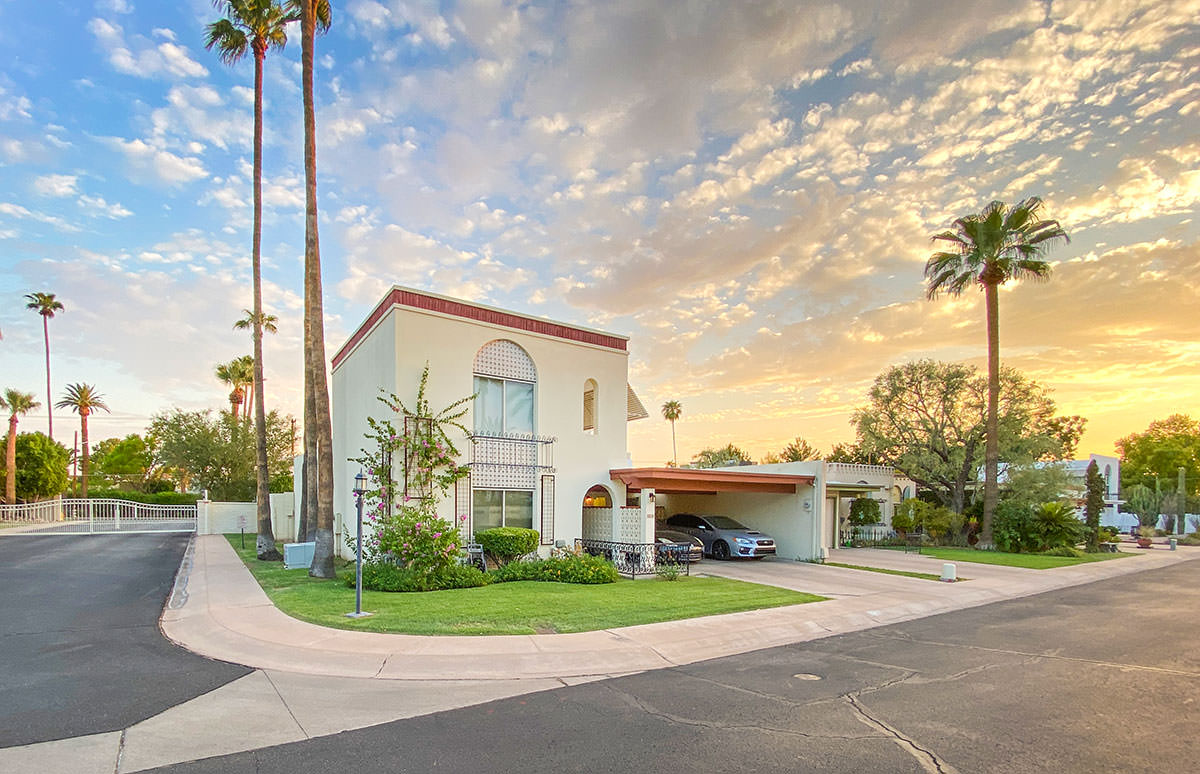
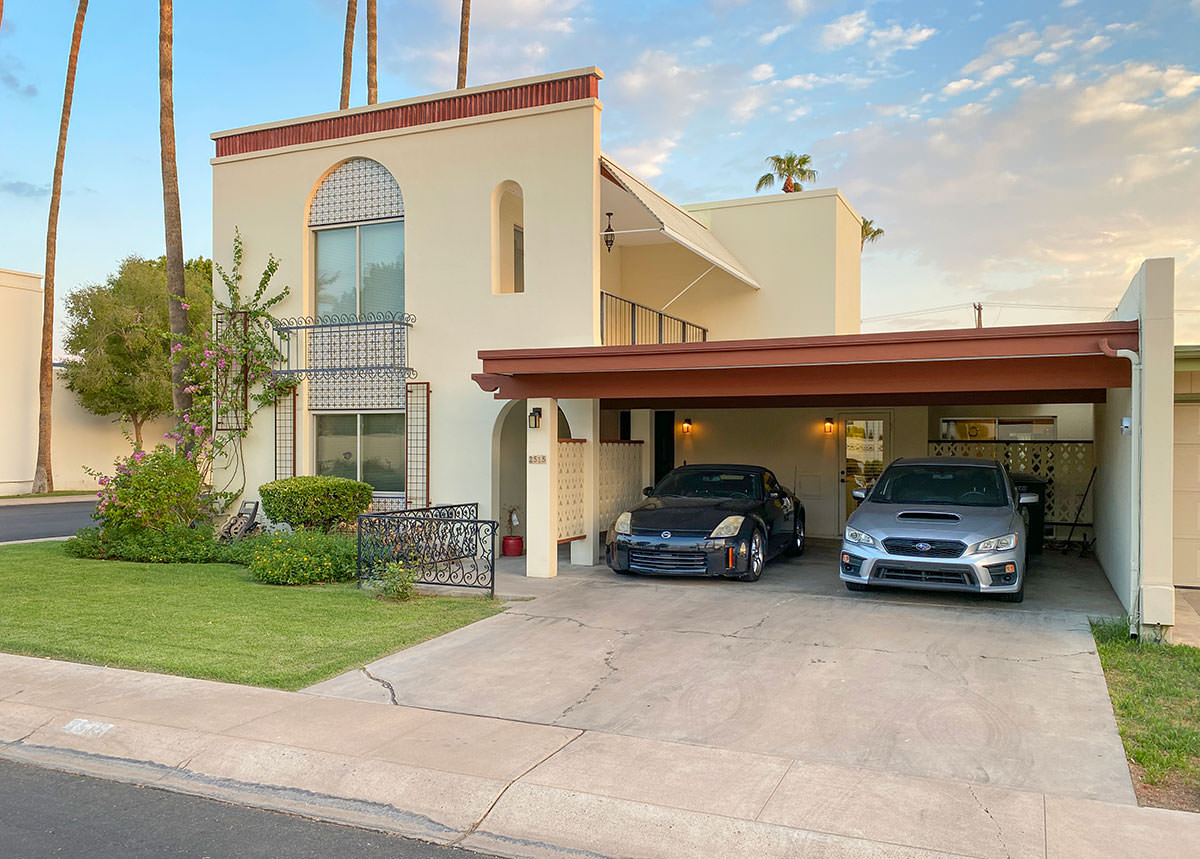
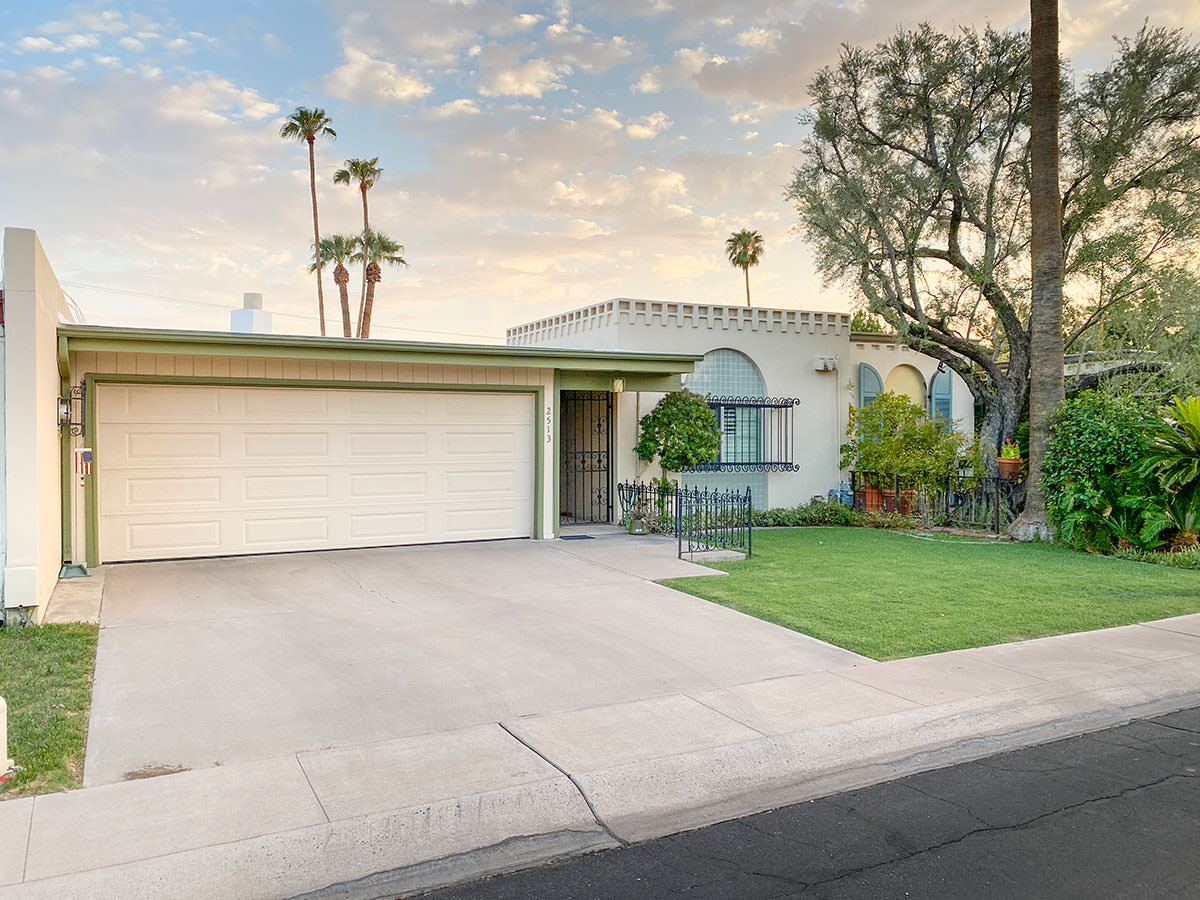
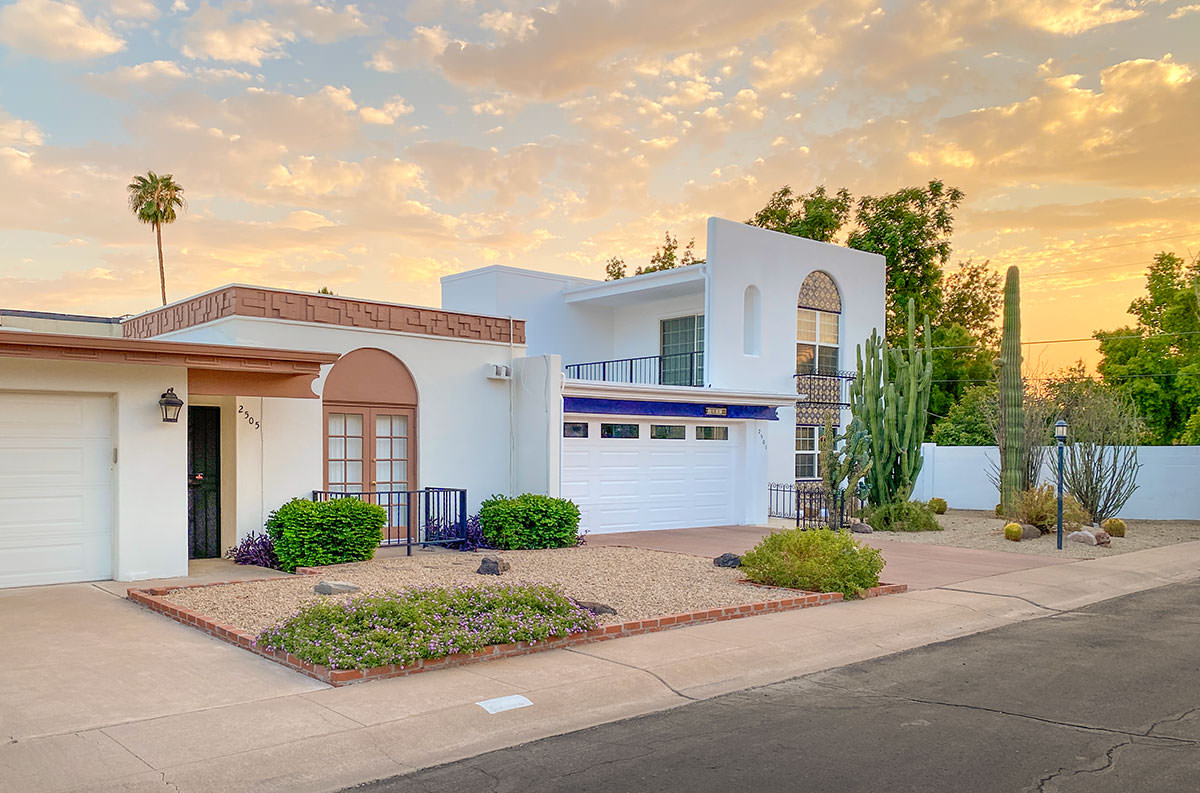
The informal modern frieze design shown here is unique to Sutton Place, as far as we know, and appears on a few models.
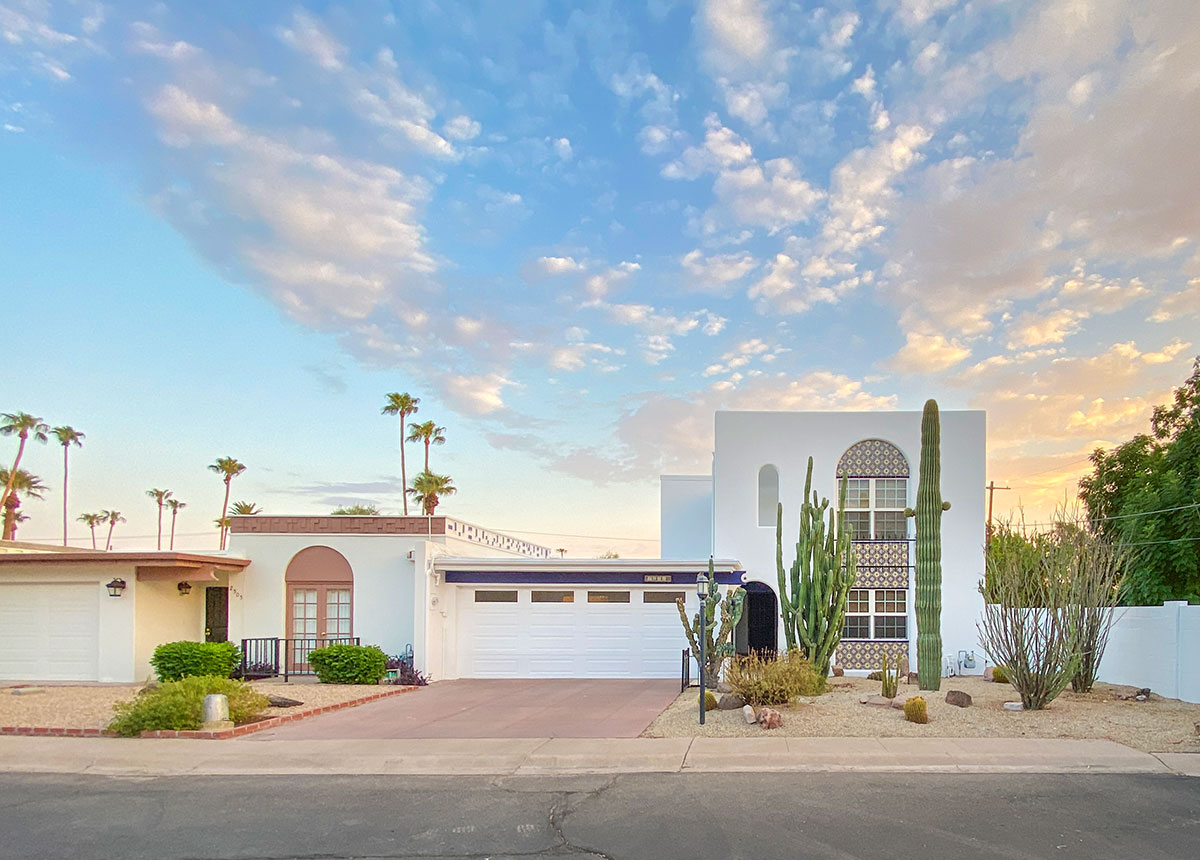

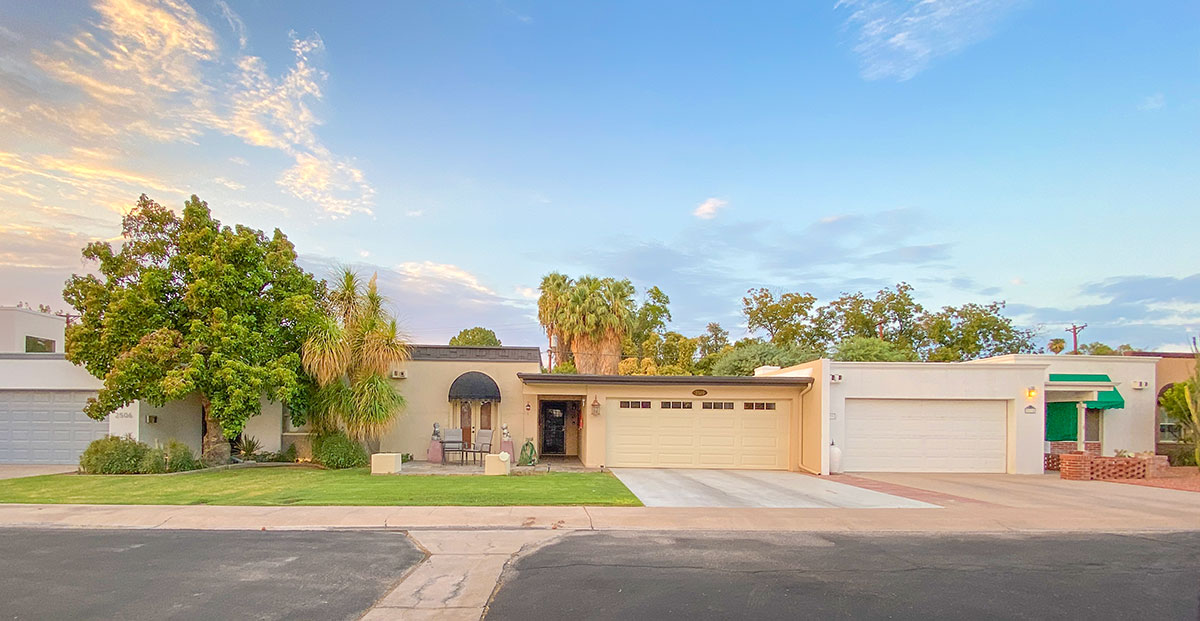
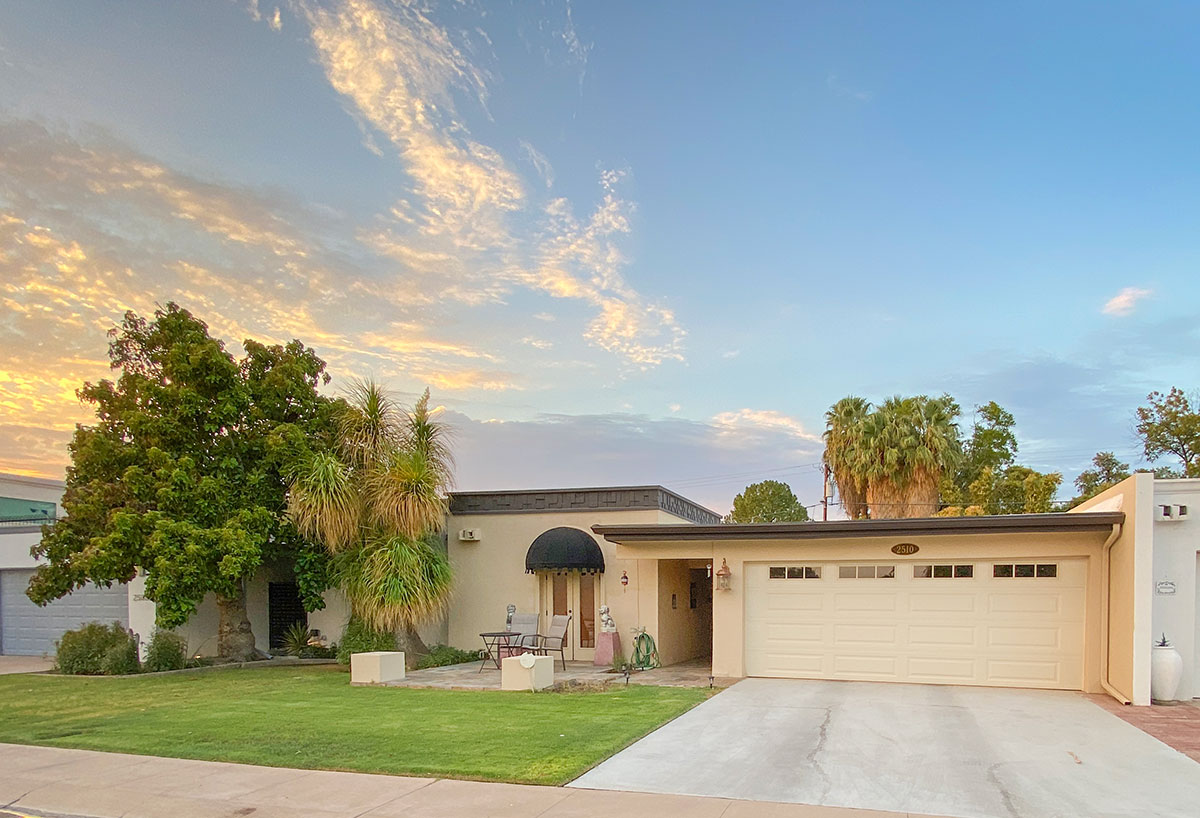
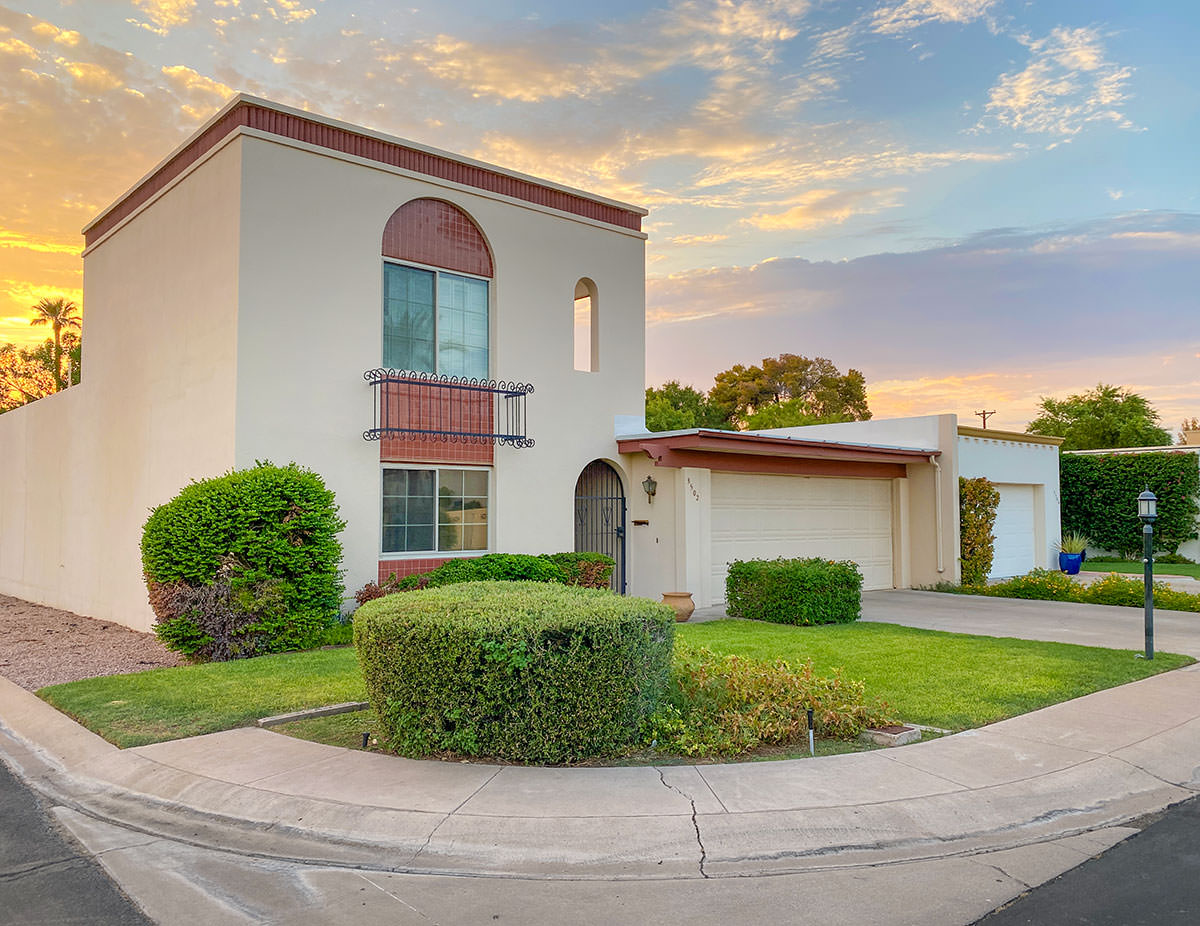
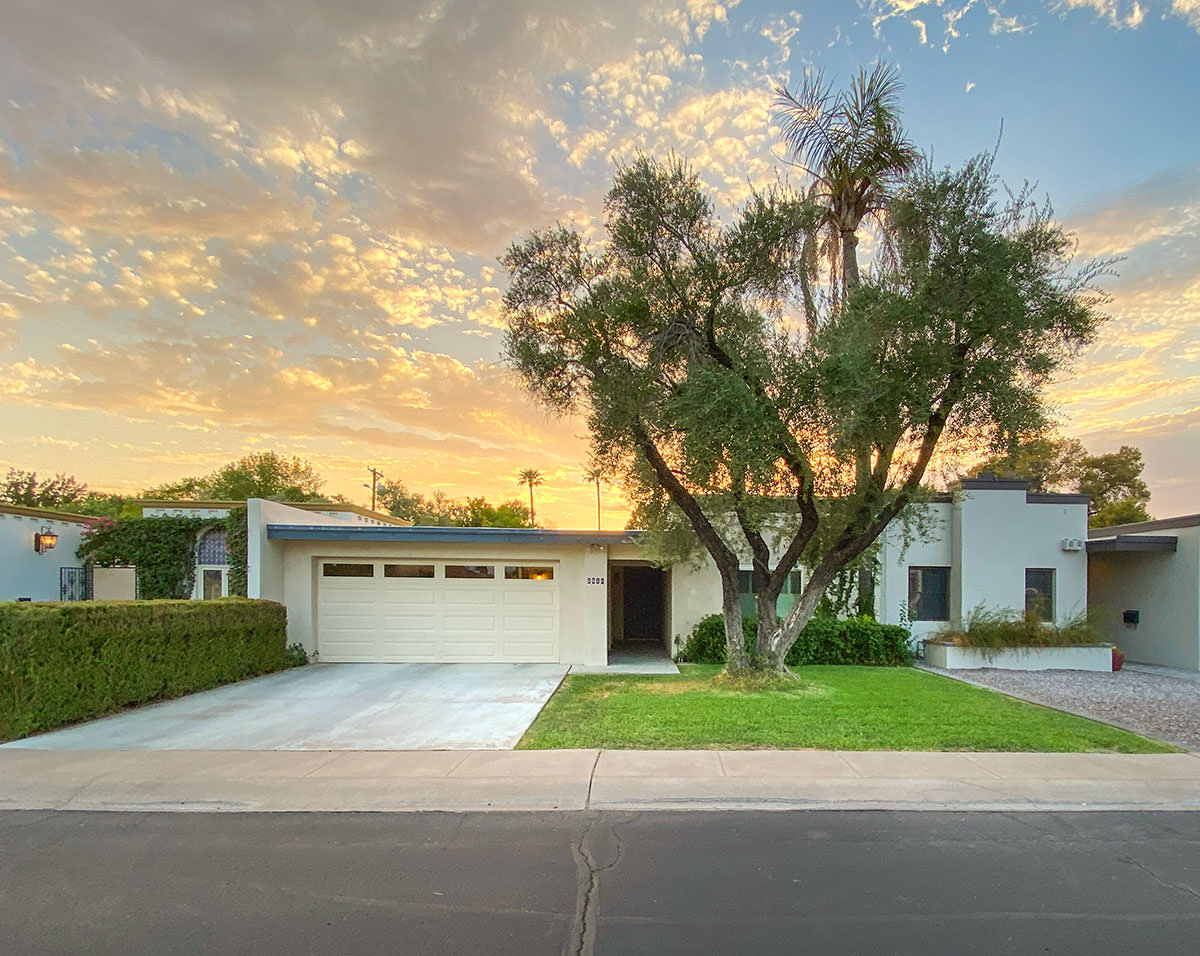
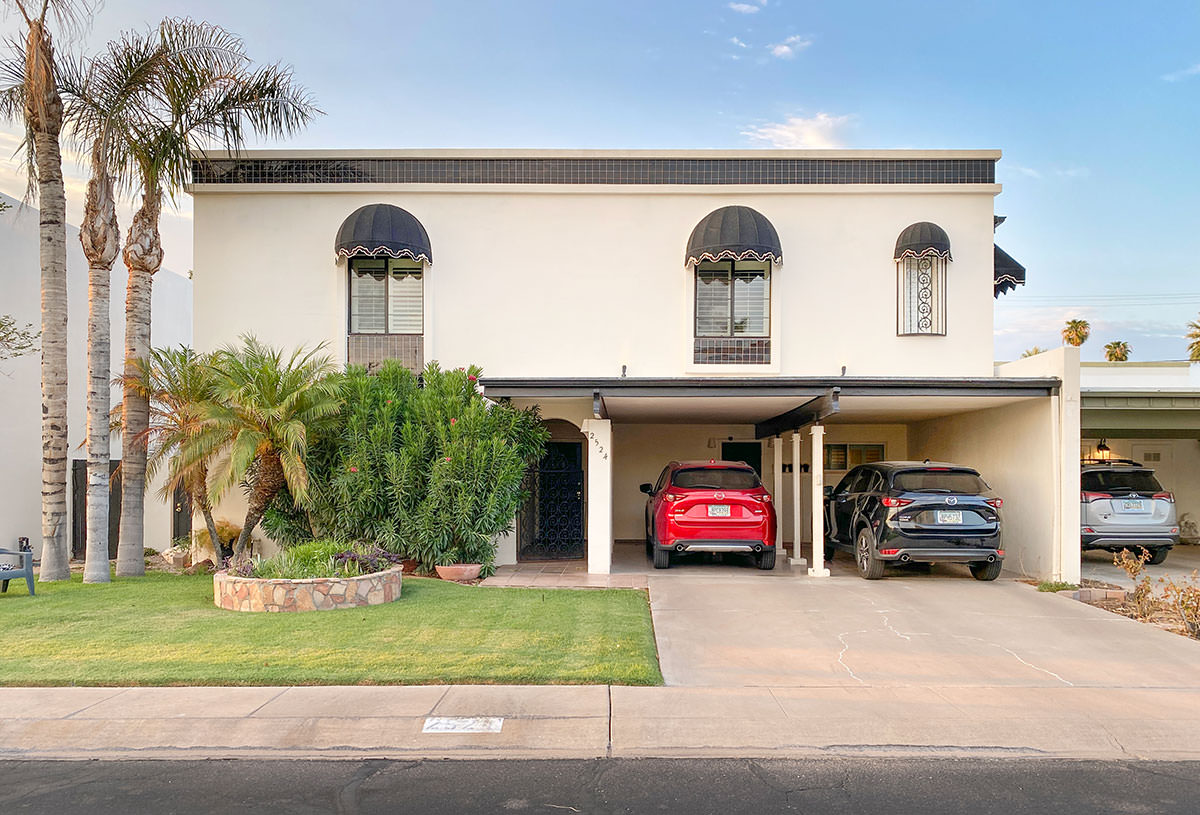
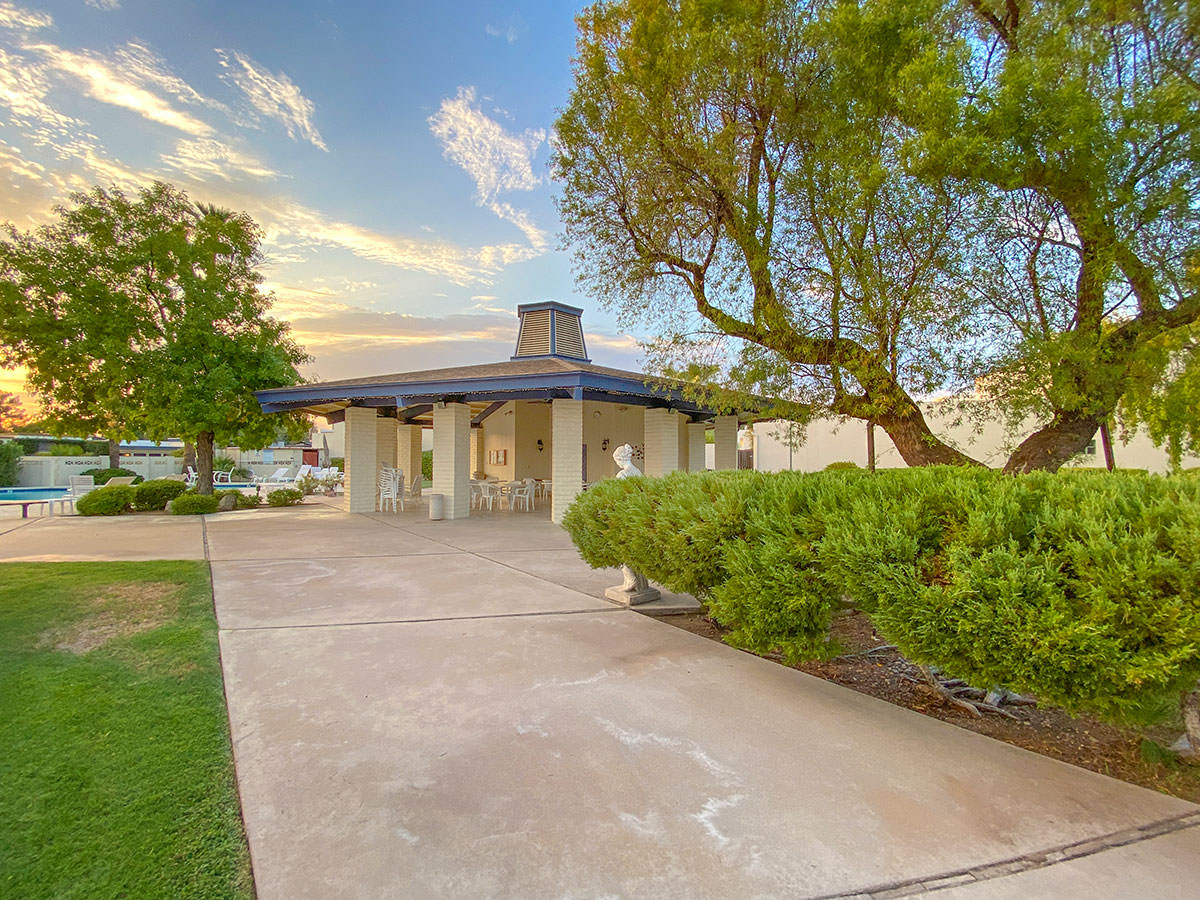
The pool house is another care-free amenity enjoyed by the community.
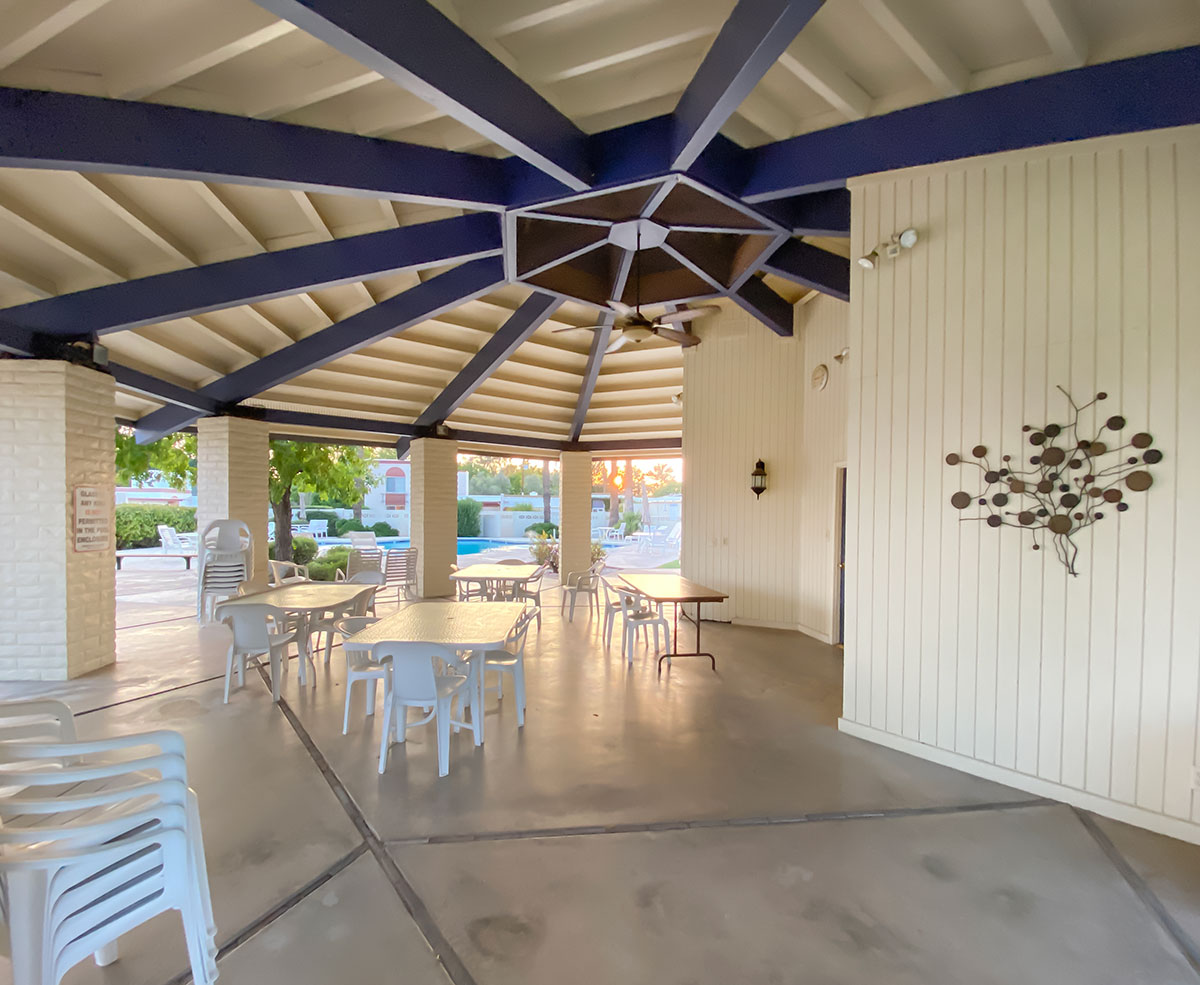
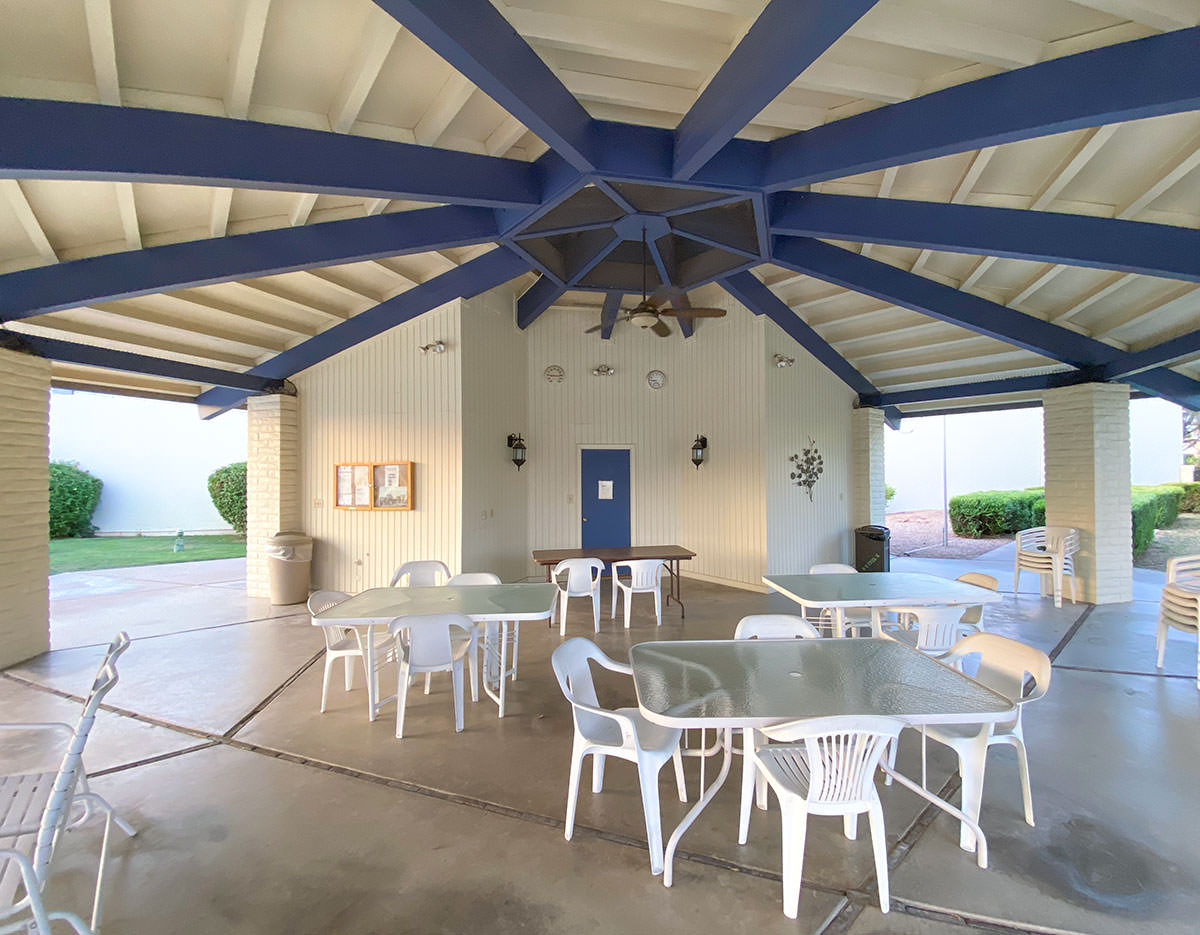
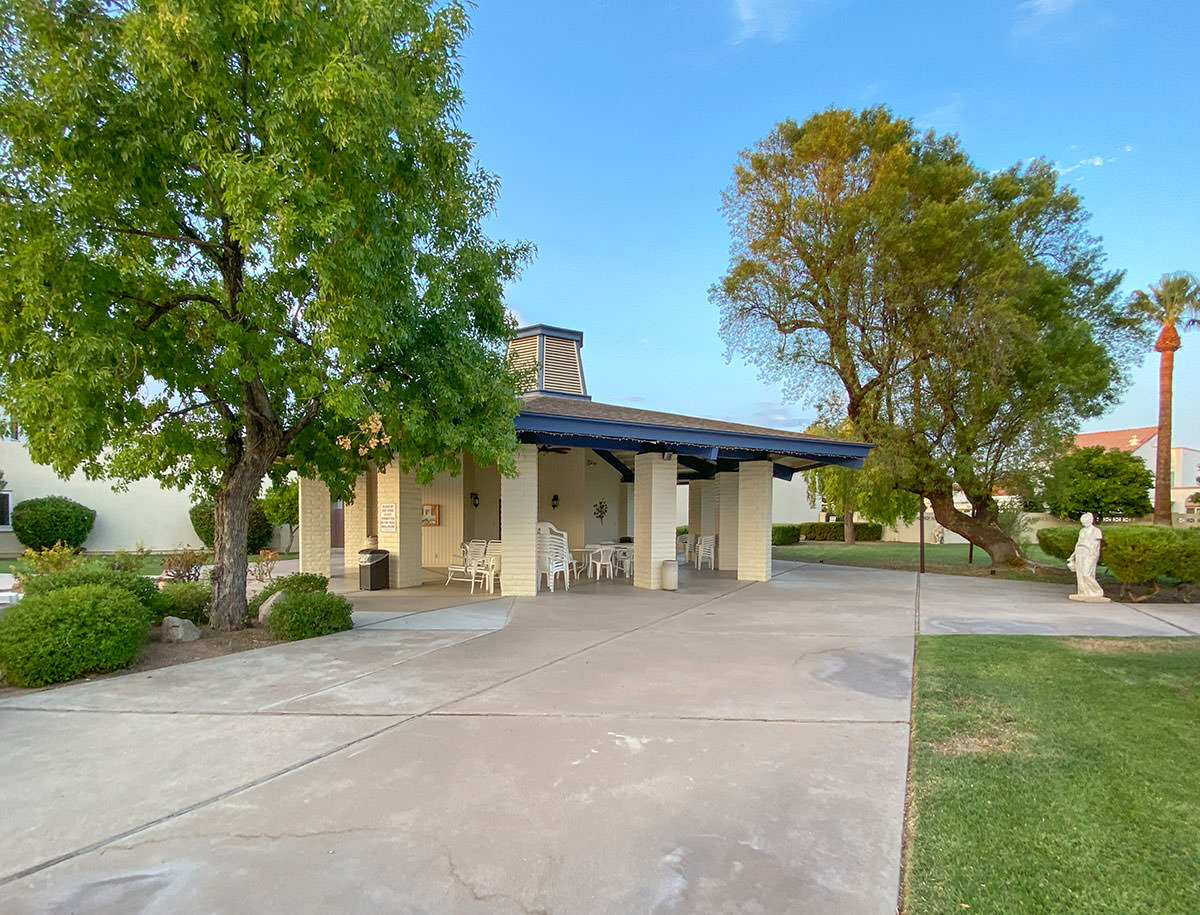

 Situated on odd lots too small to develop for single-family homes, Trailor spied these pockets of land as ideal for denser cluster housing, both serving a need for a new affordable housing type and ensuring him a healthy profit margin on development.
Situated on odd lots too small to develop for single-family homes, Trailor spied these pockets of land as ideal for denser cluster housing, both serving a need for a new affordable housing type and ensuring him a healthy profit margin on development.  In the March 1966 issue of Arizona Builder/Architect magazine Trailor remarked: "Once a year we use a piece of land that has been bypassed. A piece of land that makes people wonder, 'How in the world can he use it?' We feel that's a challenge we want to meet."
In the March 1966 issue of Arizona Builder/Architect magazine Trailor remarked: "Once a year we use a piece of land that has been bypassed. A piece of land that makes people wonder, 'How in the world can he use it?' We feel that's a challenge we want to meet." These Mediterranean styled connected townhomes continued the aesthetic Haver started in Villa Monterrey, with open carports and little touches of postmodern flair that includes arched features above windows, arched slot windows, wrought iron gates and (often non-functional) window grilles, dome awnings, breezeblock carport dividers, shallow balconies and either pumice block or glazed tile frieze details. Many of the design motifs shown here carried through on development to follow in Scottsdale, Villa d'Este.
These Mediterranean styled connected townhomes continued the aesthetic Haver started in Villa Monterrey, with open carports and little touches of postmodern flair that includes arched features above windows, arched slot windows, wrought iron gates and (often non-functional) window grilles, dome awnings, breezeblock carport dividers, shallow balconies and either pumice block or glazed tile frieze details. Many of the design motifs shown here carried through on development to follow in Scottsdale, Villa d'Este. Olive and earth tones were a popular choice for exterior colors.
Olive and earth tones were a popular choice for exterior colors.  The 47 units sold quickly. The condominium concept began to take legitimate hold in Phoenix and boomed into the 70s. Immediately across the street Trailor and Haver collaborated on its sister development Beekman Place, built in the same year.
The 47 units sold quickly. The condominium concept began to take legitimate hold in Phoenix and boomed into the 70s. Immediately across the street Trailor and Haver collaborated on its sister development Beekman Place, built in the same year. Dell and Mibbs Trailor, with their two young children, were the first family to occupy the subdivision. Local lore says that this townhome was personal residence.
Dell and Mibbs Trailor, with their two young children, were the first family to occupy the subdivision. Local lore says that this townhome was personal residence. 
 Many of the homes feature a narrow vestibule with security or entry gate of some kind. This contemporary gate has been customized to mirror the raised pattern on the front door. Minor alterations like this can cause incremental "design creep", so C&Rs deter drastic modification of the exterior, making the neighborhood appear much as it did in the mid-60s. Each property includes a back yard area which may be altered as the owner likes.
Many of the homes feature a narrow vestibule with security or entry gate of some kind. This contemporary gate has been customized to mirror the raised pattern on the front door. Minor alterations like this can cause incremental "design creep", so C&Rs deter drastic modification of the exterior, making the neighborhood appear much as it did in the mid-60s. Each property includes a back yard area which may be altered as the owner likes.



 The informal modern frieze design shown here is unique to Sutton Place, as far as we know, and appears on a few models.
The informal modern frieze design shown here is unique to Sutton Place, as far as we know, and appears on a few models.






 The pool house is another care-free amenity enjoyed by the community.
The pool house is another care-free amenity enjoyed by the community.

